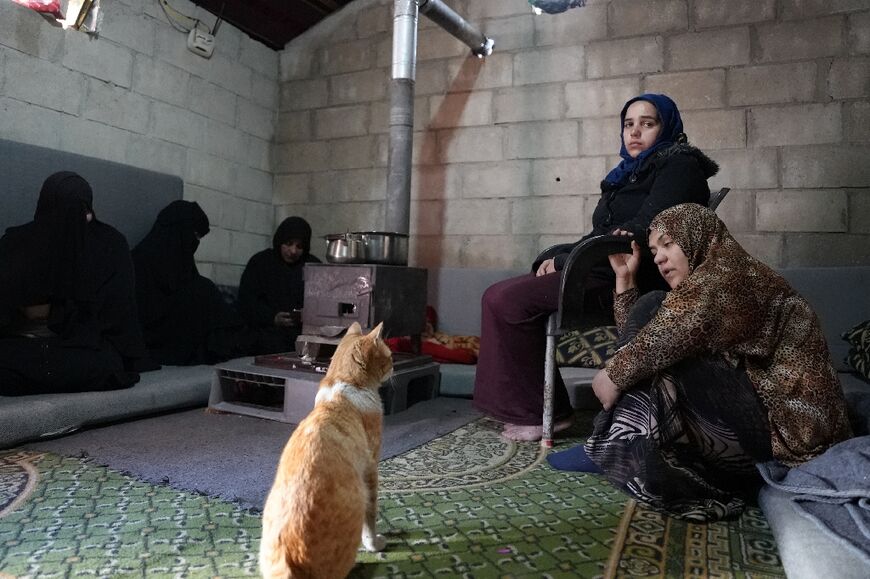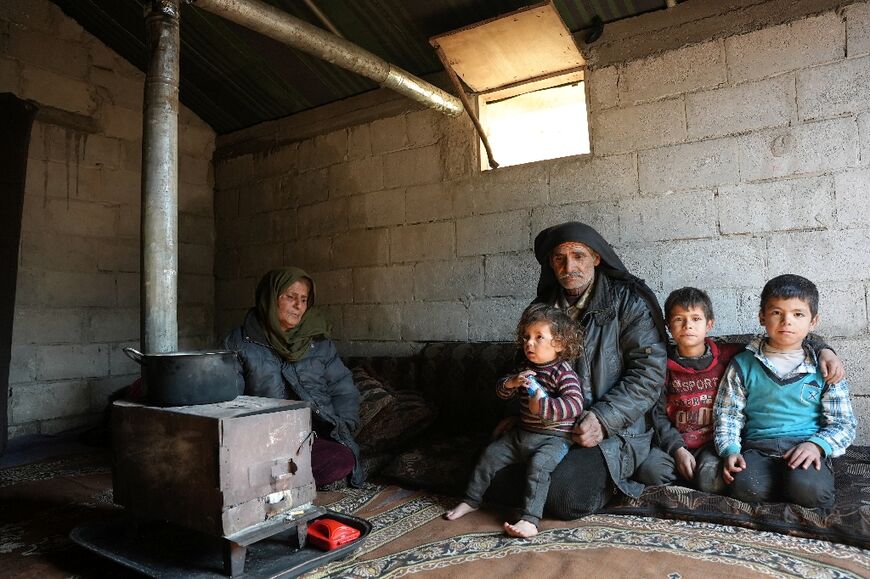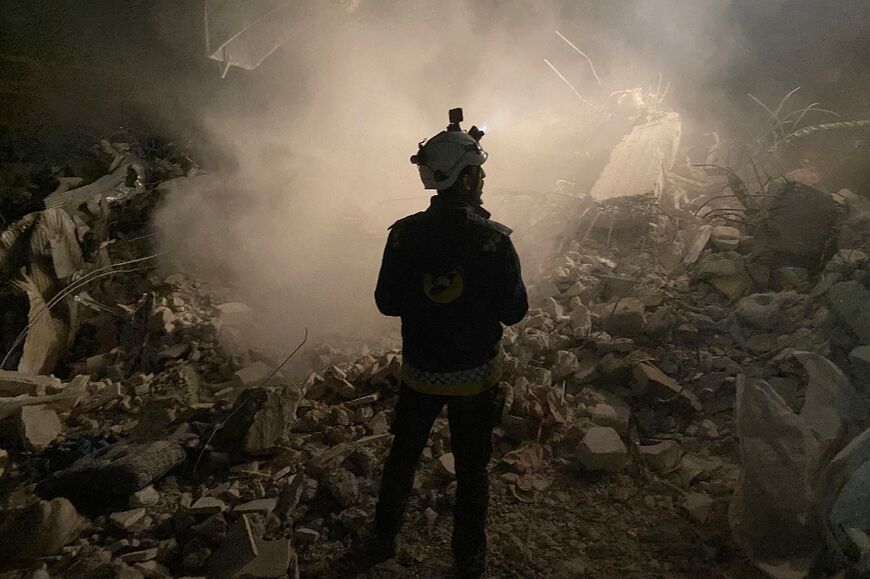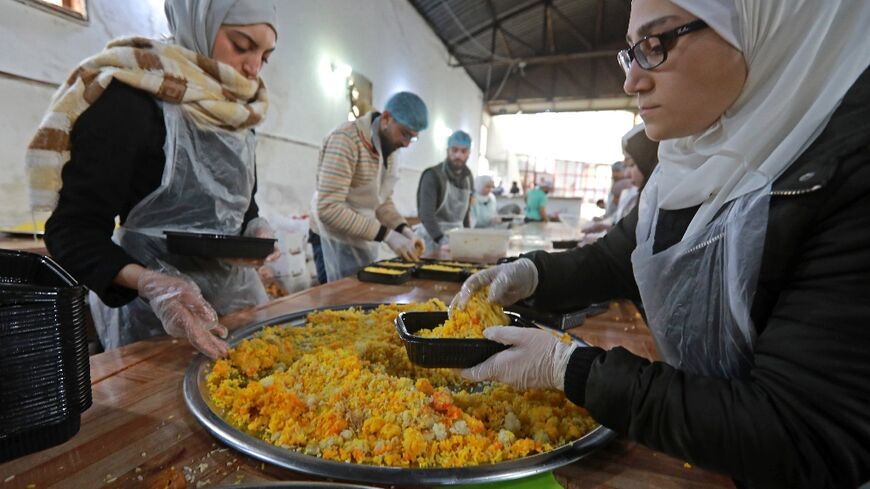Syria quake survivors take shelter in displacement camps
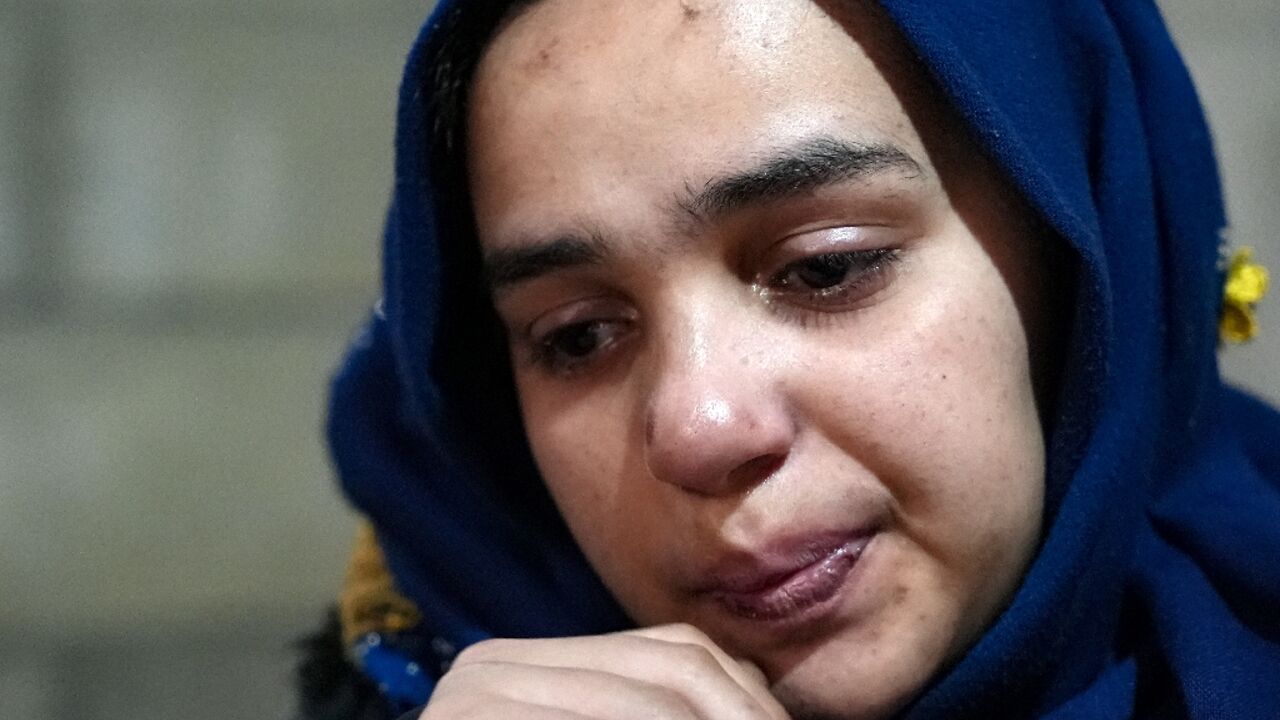
Widowed and homeless, Duaa Ghadban lost everything in a powerful earthquake, forcing her to take shelter in a camp for people displaced by war in Syria's northwest.
The 7.8-magnitude quake early Monday has killed more than 19,000 people in Turkey and Syria and flattened entire blocks over residents in their sleep.
Syrians displaced by the country's 12-year war, living in tents along the Turkish border, were largely spared the damage.
Ghadban, 21, was pulled out of the wreckage hours after the quake and now lives in a relative's shoddy shelter in the northwestern Deir Ballut camp.
The dazed mother stared at a photo of one of her deceased children on her phone, weeping as she kissed the screen.
She saw her husband's dead body trapped under concrete slabs, as he was embracing one of her three children -- all of whom are now dead, she said.
"They buried them together. My husband never let him go," Ghadban said, barefoot in the winter cold, her voice breaking as she recalled the tragedy that killed her 40-day-old toddler.
- 'Displaced again' -
"I still can't believe I made it out, I feel like I'm still stuck under the rubble," Ghadban said, sitting on a plastic chair in a small concrete room with tarp overhead.
This is her home now, crammed into one room with her mother, sister, brother and their families.
"We have nothing left," she said.
Many survivors like Ghadban flocked to camps including Deir Ballut, either because they had nowhere to sleep or because they feared aftershocks would level their damaged homes.
Displaced camp dweller Fida Mohammed told AFP the residents there "thanked God for their tents after they saw what happened".
After disaster struck, Ghayath Zarzour moved to the camp to live with his two displaced cousins and their families.
"We are 30 people in this small room, without heating or blankets," he said, his head wrapped in a white gauze and eyes swollen shut.
Already displaced from Damascus by war, Zarzour now lost his second home in the northern town of Jandairis.
"We have been displaced time and time again," he said, huddled under the same blanket with his children.
"Today, history repeats itself."
- 'Where do we go?' -
Many Syrians are also spending the night in new makeshift shelters along the border.
In one such centre in the rebel-held city of Idlib, a huge tent was packed with dozens of women and children, laying on mattresses lined up on the ground.
Children quietly munched on crisps, tucked under a blanket, with mothers comforting weeping babies while others made coffee.
"There are huge numbers of homeless people who are afraid their homes will fall over their heads," said Abdel Kader Taid, who works in the shelter.
In other parts of Syria affected by the quake, residents spent the night in their cars.
Near quake-damaged Jandairis, parked cars packed with families lined one street.
"Some of us sleep in the car, others on the street," said Mohammed Hayani, 50, sitting on the ground wrapped in a blanket near his truck.
Dozens more laid on the ground between the olive trees, with nothing but blankets and the clothes they wear.
Umm Jassem, her husband and two children, fled Jandairis after the earthquake, walking through the trees until they reached Deir Ballut.
"Where do we go?" asked the 54-year-old woman from a relative's tent.
She sent her two sons back to the town, in hopes that they could salvage any of their belongings from the ruins of their flattened house.
"The cold killed us here," she said, shivering in her traditional black abaya and hijab.
"All we want is shelter."


